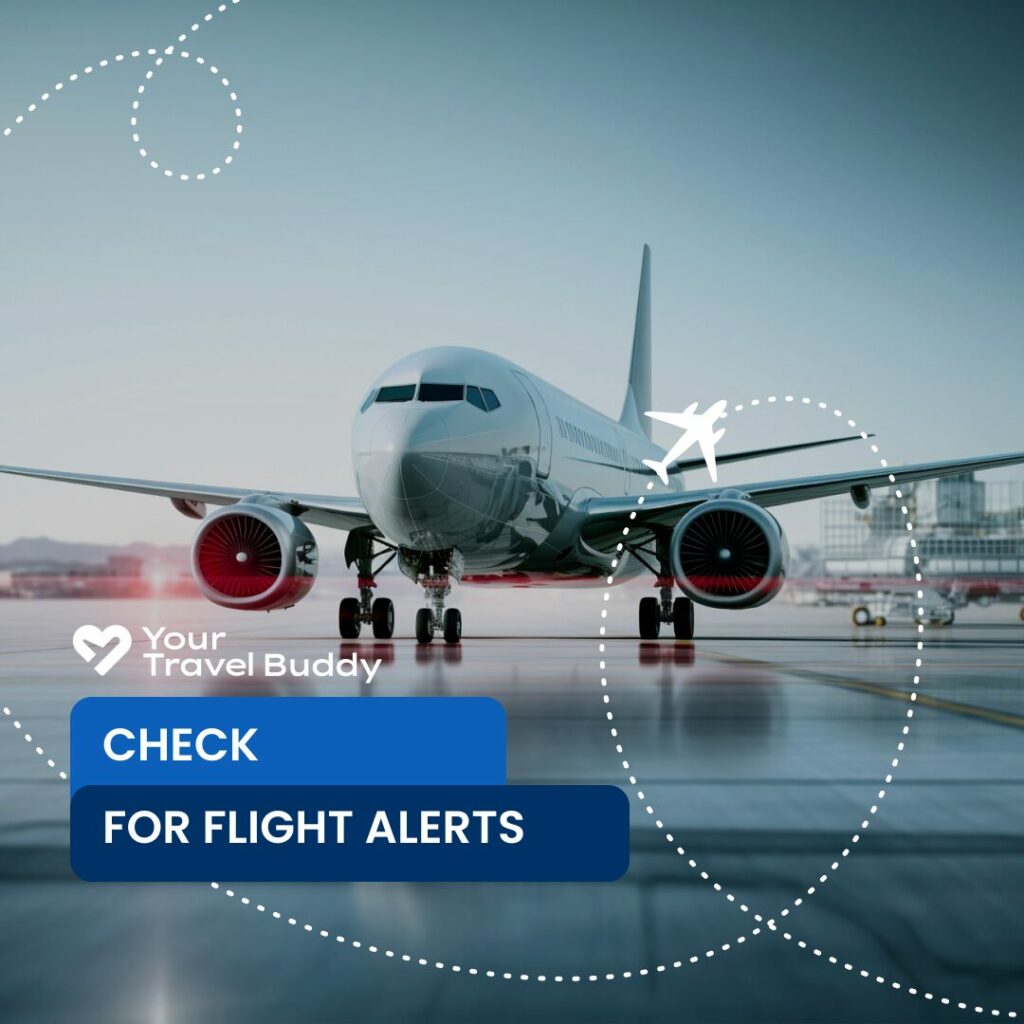In today’s travel landscape, staying updated on your flight status is essential for a seamless journey. Flight delays, cancellations, and schedule changes are not uncommon, especially with ever-changing weather conditions, air traffic demands, and operational factors. One of the easiest ways to navigate these potential disruptions is by signing up for flight alerts through your airline. Here’s a closer look at why flight alerts are crucial, how to set them up, and how they can enhance your travel experience.
Why Flight Alerts Matter
Flight alerts allow you to receive real-time updates on any changes to your flight schedule, helping you adapt promptly. Whether it’s a last-minute gate change or a weather delay, staying informed lets you:
- Avoid Unnecessary Wait Times: With instant updates, you’ll know exactly when your flight is on schedule or facing a delay, so you’re not left waiting unnecessarily at the airport.
- Plan Your Connections More Easily: In cases where your initial flight may be delayed or rescheduled, knowing in advance can give you time to adjust your connecting flights and avoid potential missed connections.
- Minimize Stress and Anxiety: Travel disruptions can be stressful, but getting immediate notifications helps you take proactive steps, reducing unexpected surprises.
- Receive Important Information Quickly: Besides flight times, airlines may send critical updates related to your specific travel route, COVID-19 requirements, or even promotional information on upgrades and services.
How to Set Up Flight Alerts
Setting up flight alerts is quick and easy, typically requiring just a few steps through your airline’s website or app:
- Register with the Airline: Start by logging into your account on the airline’s website or mobile app. If you don’t have an account, it’s worth creating one for access to perks like easy alerts and check-ins.
- Locate the Flight Alerts Option: Most airlines have an option to set up alerts within your booking or profile settings. Look for terms like “Flight Status Notifications,” “Travel Alerts,” or “Flight Updates.”
- Select Your Notification Preferences: Choose your preferred way of receiving alerts, whether by email, SMS, or push notifications through the app. Some airlines may even allow alerts on multiple devices.
- Confirm Your Preferences: Complete the setup and ensure your notifications are turned on, allowing your device or email to receive updates from the airline.
Benefits of Using Flight Alerts
Besides just keeping you informed, flight alerts offer peace of mind and preparedness, which are invaluable when traveling. They help you stay connected to vital updates, enabling you to act quickly if changes occur. Here’s how flight alerts add value to your travel experience:
- Timely Cancellations and Rescheduling: With flight alerts, if your flight gets canceled, you’re often among the first to know and can quickly rebook or contact the airline for assistance.
- Prepare for Gate Changes: Larger airports frequently update gate assignments, and being notified directly helps you move efficiently without missing your departure.
- Receive Pre-Boarding and Security Updates: Some airlines provide reminders on when to check in or clear security, making the boarding process smoother.
- Stay Informed on Upgrade Opportunities: Occasionally, airlines use alerts to notify you about potential upgrade offers, providing a chance to enjoy a more comfortable experience.
Additional Tips for a Smooth Travel Experience
To make the most of your flight alerts, keep these additional tips in mind:
- Update Contact Information: Ensure that your contact details (email, phone number) in your airline profile are current so you don’t miss any alerts.
- Keep the App Handy: If your airline has a mobile app, download it! Most flight alerts are integrated into apps, allowing for convenient, centralized updates.
- Check Alerts Regularly: Even though alerts are automatic, keep an eye on your phone or email before and during your travel day for any last-minute updates.
- Follow Backup Plans: Should a cancellation or long delay occur, have backup plans such as alternative routes, overnight accommodation, or flexible plans for connecting flights.
Conclusion
Signing up for flight alerts is a simple yet powerful tool to make your travel experience smoother and less stressful. By staying informed of any updates, you can better plan your journey, respond proactively to changes, and focus on enjoying your trip. So, next time you’re booking a flight, take an extra minute to activate flight alerts and keep YourTravelBuddy’s essential travel tip in mind for a hassle-free journey!
